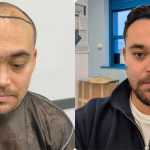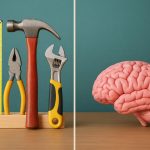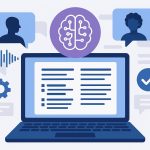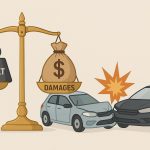Legal literacy equips us to protect our rights, understand our duties, and handle complex legal matters confidently. Many people shy away from legal help because they don’t understand or fear the legal process. This creates what experts call a “justice gap.”
Legal literacy means knowing and understanding the laws that shape our daily lives and businesses. This knowledge helps us spot legal issues early and talk effectively with everyone involved. Most of us learned very little about law during our school years. We barely covered one or two subjects at most. This leaves huge gaps in our grasp of how laws affect business operations and personal choices.
Let me show you the basics of legal literacy and how it works. Together, we’ll look at ways to build a society that understands its legal rights better. The best part? You won’t need a law degree to make sense of your legal rights – I’ll keep everything transparent and straightforward.
Understanding the Basics of Legal Literacy
Legal literacy means more than just knowing legal terms. It represents “the ability to connect relevant legal rules with the professional priorities and objectives of ethical practice”. This knowledge helps you understand and apply legal rights, responsibilities, and procedures daily.
Legal literacy works like a spectrum. Professional expertise sits at one end and requires years of education and practice. Simple awareness of legal concepts as unfamiliar to you sits at the other. Most citizens need something in between – enough competence to navigate our increasingly legalistic society.
Legally literate people can:
- Know when and how to get specialist legal help
- Look after their interests in everyday situations
- Assess news and information about legal matters
- Handle positions of responsibility well
Legal literacy connects complex legal systems to everyday people. People become vulnerable to exploitation without it. They might accept unfair contracts or get less than they deserve.
The impact of legal illiteracy can reshape the scene. Many people don’t know their problems have legal solutions, which blocks their path to justice. Legal jargon and complex processes scare people away and create societal power imbalances.
Organizations need more than just legal knowledge to be legally literate. They must build legal understanding through training, supervision, and open discussions about complex cases. Legal literacy reaches beyond legal professionals – people in various roles should understand their legal powers and duties.
Legal literacy strengthens people. It turns laws from abstract concepts into tools everyone can understand and use. This knowledge helps people read contracts, know their rights during disputes, and make smart decisions that follow the law while protecting what matters to them.
Applying Legal Literacy in Everyday Situations
Legal implications affect our daily lives, but we rarely notice them. Simple actions like signing contracts or protecting our online data show how legal knowledge plays a role in our everyday activities. Everyday legal awareness also applies to understanding state-specific safety laws, like those governing motorcycle helmets. ConsumerShield helps break down helmet laws across the U.S. in plain language so riders know exactly what’s required in their state. As you may know, legal literacy helps businesses bridge the gap between complex legal systems and day-to-day operations. Employees who understand legal aspects can turn potential problems into opportunities. This knowledge strengthens business relationships and improves competitive advantage. Companies work better when legal literacy exists at both employee and organizational levels. This creates a structure that helps communication flow through the company.
Homeowners and tenants can avoid getting into pricey disputes by understanding their lease agreements. A lease should spell out the rent amount, due dates, terms of occupancy, and how to handle violations. Tenants should also know their privacy rights. Most states require landlords to give at least 24-hour notice before they enter the property.
Legal awareness matters just as much in employment relationships. The employment contract forms the foundation of any working relationship. It outlines both parties’ rights and obligations. These contracts need job descriptions, compensation details, confidentiality clauses, and termination procedures. Companies must correctly identify whether workers are full-time, part-time, or independent contractors. Wrong classification can cause ongoing legal issues.
Today’s digital world requires us to protect our personal information online. About 74% of Americans think controlling personal information is “very important.” Understanding privacy laws is vital. People can protect themselves by recognizing threats like unsafe browsing, cookie tracking, and IP address vulnerabilities. They can use secure browsers, clear cookies regularly, and use VPNs when needed.
Legal literacy gives us the power to make informed decisions in everyday situations. We don’t have to be professionals to use legal knowledge. It’s a practical tool that helps us deal with complexities, protect our interests, and stand up for our rights when necessary.
Building a Legally Literate Society
Society needs more than individual knowledge to build legal literacy – it needs systematic education and community involvement. Complex legal frameworks govern our world, and legal literacy extends way beyond the reach and influence of law schools to enable citizens who actively participate in democratic processes.
Legal literacy improves access to justice by a lot. People often avoid seeking legal help because they don’t understand their rights or feel intimidated by legal complexities. Active civic participation grows stronger when legal education reaches beyond professionals. This supports the rule of law and strengthens democratic involvement.
Schools reshape the scene vitally. The United States rarely teaches law outside of law schools, creating a significant civic education gap. Students gain multiple benefits when they learn legal reasoning early:
- They develop critical thinking and problem-solving skills
- They build intellectual humility by thinking over multiple views
- They learn to participate better in political and legal processes
- They master reasoning by analogy – a valuable life skill
Street Law programs have successfully brought legal literacy to high school students for over two decades. These programs show how legal education can change lives, especially when you have first-generation college-bound students who might pursue law-related careers.
Legal literacy works as a powerful tool to drive social change. Citizens can support reforms, join policymaking, and challenge injustices. People who understand legal matters can better push for progress in environmental law, civil rights, and social equity.
The digital world demands a better understanding of digital rights, privacy laws, and legal implications of online behavior. This knowledge protects citizens as more of life moves online.
A legally literate society creates informed citizens who protect themselves from exploitation and discrimination. Problem-solving approaches to legal education place rights-based curriculum in social and economic contexts. This enables communities to overcome barriers and access justice effectively.
Conclusion
Legal literacy goes beyond an academic concept – it’s a practical skill set you need to guide yourself through our complex world. This piece explores how understanding legal basics allows you to protect your rights, fulfill obligations, and make informed decisions in your daily life. Legal knowledge offers excellent value to get ahead in business operations, housing agreements, employment relationships, and digital privacy, whatever your profession or background.
The lack of legal education creates significant challenges for many people. Most individuals never get formal legal instruction outside professional law schools. This leaves them vulnerable when they face contracts, disputes, or essential decisions with legal implications. People already marginalized in society feel these effects even more deeply, widening existing inequalities.
A legally literate society needs a collective effort to build. Schools should add legal reasoning to their curricula. Community programs need to expand and reach people from different backgrounds. Democracy works better when citizens understand their rights and responsibilities. People participate confidently in civic processes and promote meaningful change.
Legal literacy gives you personal strength. Laws aren’t intimidating barriers that only professionals can understand. You can welcome legal knowledge as an available tool to protect your interests, assert your rights, and contribute to a fairer society. Building legal literacy takes time and effort. The benefits make it worthwhile for everyone – protection from exploitation, confident decision-making, and fuller societal participation.
Lynn Martelli is an editor at Readability. She received her MFA in Creative Writing from Antioch University and has worked as an editor for over 10 years. Lynn has edited a wide variety of books, including fiction, non-fiction, memoirs, and more. In her free time, Lynn enjoys reading, writing, and spending time with her family and friends.















